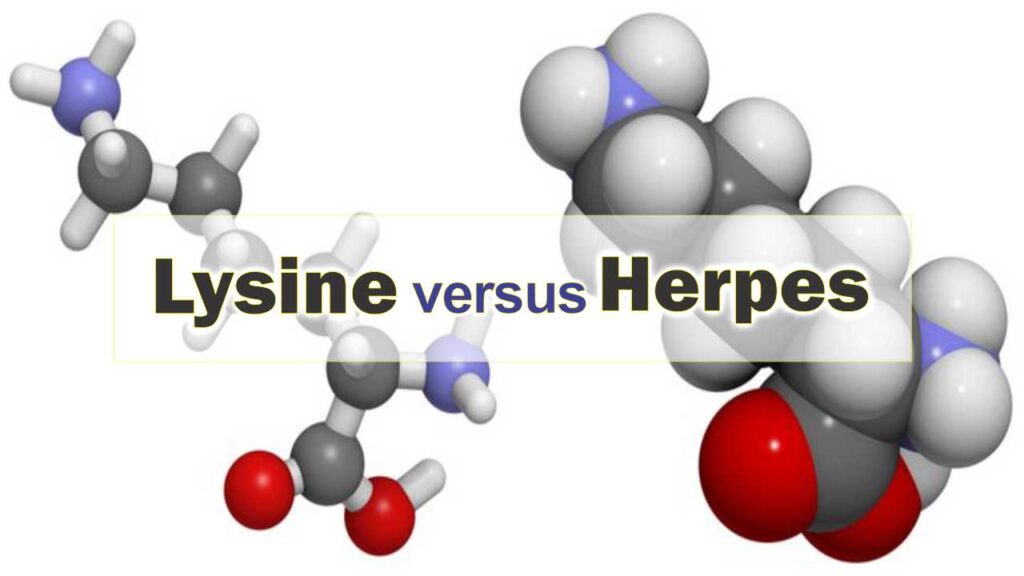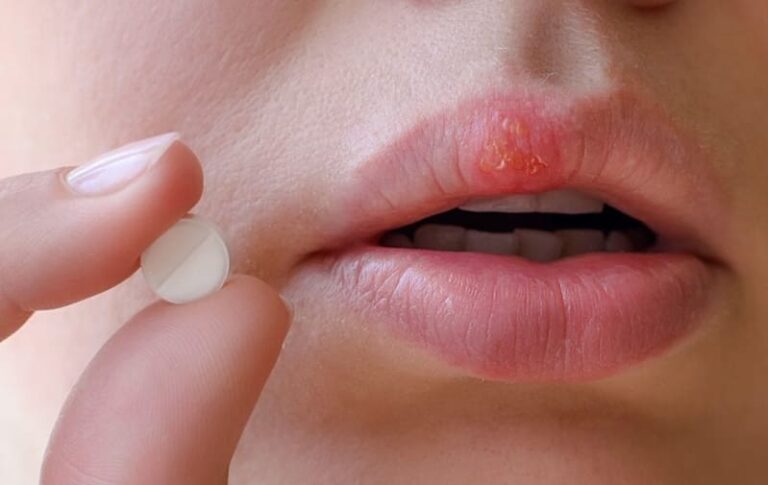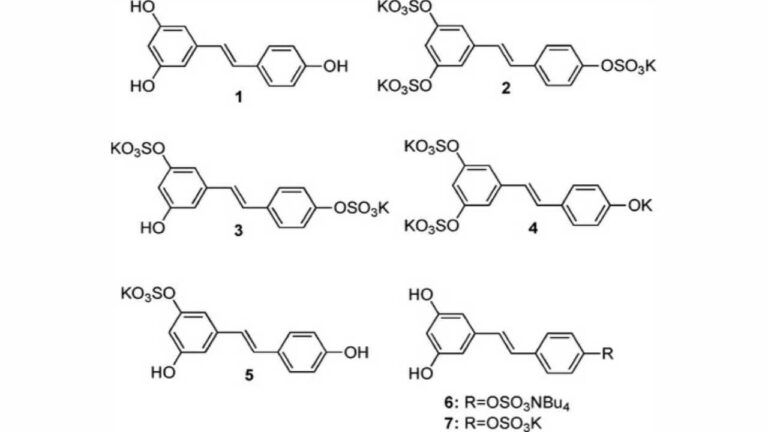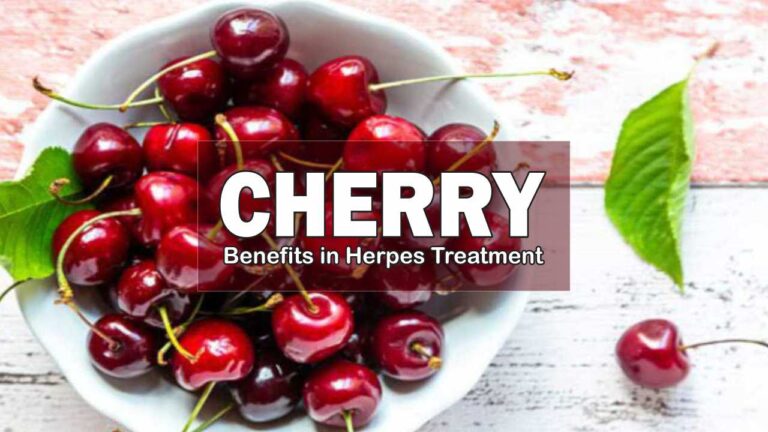One of the approaches to the treatment and prevention of this virus involves the use of specific amino acids, such as lysine and arginine.
In this article, we will explore the relationship between these amino acids and herpes, analyzing their influence on the course of infection, the effectiveness of using lysine as a treatment, and precautions related to the consumption of arginine-rich foods.
Lysine: An ally against herpes
Lysine has been widely studied and recommended for the treatment and prevention of herpes due to its potential inhibitory effect on the replication of the herpes simplex virus (HSV). There are several reasons why lysine is considered beneficial in this context:

Competition with Arginine
HSV requires arginine, another amino acid, for its replication and spread. Lysine and arginine share the same cellular transporters to enter cells. By increasing the concentration of lysine, there is competition between these amino acids for cellular absorption. This can reduce the amount of arginine available to HSV, making its replication more difficult.
Inhibition of Arginine Decarboxylase Enzyme
Lysine can inhibit the activity of the arginine decarboxylase enzyme, which is involved in the production of polyamines necessary for the growth and replication of HSV. By inhibiting this enzyme, lysine can decrease the virus’s ability to replicate and spread.
Stimulation of the Immune System
Lysine may also have a positive effect on the immune system by strengthening the immune response against HSV. It is believed that lysine increases the production of specific antibodies for HSV, aiding in combating the infection.
Lysine-Rich Foods, Ideal for Herpes
Discover the main lysine-rich foods with lower arginine content, options that can be included in your diet for herpes treatment:
Lean meats
Skinless chicken, turkey, and lean beef are excellent sources of lysine. Make sure to choose lean cuts to reduce the amount of arginine.
Fish
Fish such as salmon, trout, tuna, and cod are rich in lysine and make good choices to include in your diet.
Dairy products
Dairy products like Greek yogurt, cottage cheese, ricotta cheese, and milk are good sources of lysine. However, it’s important to check labels as some cheeses may have higher arginine content.
Legumes
Beans, lentils, and chickpeas are legumes that provide a good amount of lysine. Additionally, these foods are also rich in fiber and essential nutrients.
Quinoa
Quinoa is a pseudo-cereal that contains a significant amount of lysine and can be a great alternative to traditional grains like rice.
Eggs
Eggs are an excellent source of protein and contain a considerable amount of lysine. They are also versatile and can be included in a variety of recipes.
Avocado
In addition to being a great source of healthy fats, avocado also contains a reasonable amount of lysine.
Spinach
Spinach is a plant-based source rich in lysine. Additionally, it is loaded with other beneficial nutrients such as iron and vitamins.
Lysine-Arginine Ratios in Foods
Learn about the lysine-arginine ratios in foods.
Please check the graph in the link below: https://forgetyourherpes.com/wp-content/uploads/2023/06/Lysine-Arginine-Ratios-in-Foods-Forget-Your-Herpes.pdf
The data is based on information from the Agricultural Handbook by the U.S. Department of Agriculture.
You can compare the milligrams of lysine with the milligrams of arginine in the same quantity of a food. The number on the right (in the orange column) is the ratio, ranging from 0 to 3. Three represents the highest lysine count, one indicates equal amounts of lysine and arginine, and zero signifies more arginine than lysine.
In other words, lysine is higher at the top of the list and lower at the bottom.
Other Benefits of Lysine
In addition to its role in the prevention and treatment of herpes, lysine offers a variety of health benefits. Here are some of the key benefits associated with lysine:
Protein synthesis
Lysine is an essential component in protein synthesis. It plays a crucial role in the formation of collagen, a protein essential for skin health, connective tissues, and bones.
Bone health
Lysine is involved in calcium absorption and is important for bone health. Adequate intake of lysine can help prevent conditions such as osteoporosis.
Immune system stimulation
Lysine plays an important role in immune system function and response. It assists in antibody production and immune cell activity, strengthening the body’s ability to fight infections and diseases.
Cardiovascular benefits
Studies have shown that lysine can help reduce levels of low-density lipoprotein (LDL), known as “bad” cholesterol. This can have a beneficial effect on cardiovascular health, reducing the risk of heart disease.
Wound healing
Lysine plays a crucial role in wound healing. It is involved in collagen production, which is essential for tissue regeneration and repair.
Neurotransmitter balance
Lysine is necessary for the synthesis of neurotransmitters such as serotonin, which play a key role in mood, sleep, and proper brain function.
Stress and anxiety reduction
Lysine may play a role in reducing stress and anxiety levels. It is believed to act as an antagonist to the glutamate receptor, helping to modulate brain activity and providing a calming effect.
It is important to note that obtaining lysine through a balanced diet is generally sufficient to meet the body’s needs. However, in some cases, lysine supplementation may be recommended, especially for individuals with restrictive diets or specific medical conditions.
It is crucial to mention that lysine is not considered a cure for herpes but rather a complementary approach in managing the infection. Lysine supplementation is also considered very safe for herpes treatment.




